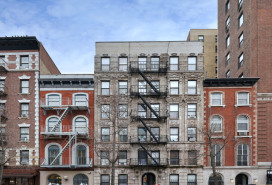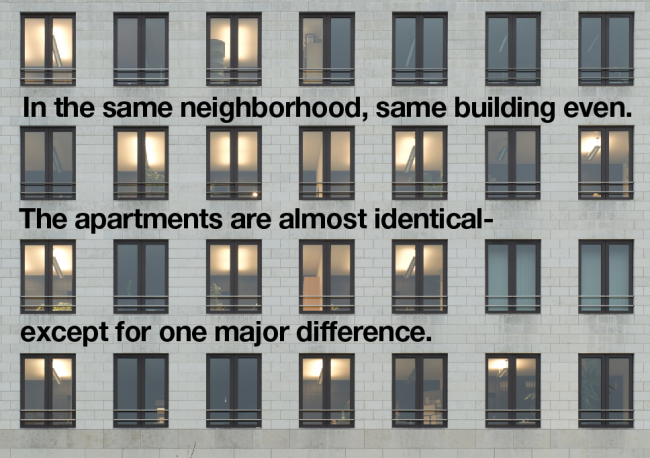Can I work from my 80/20 apartment—and claim it on my taxes?

You can work from home—with a few specific restrictions—and you need to be careful about how much you claim on taxes.
Would it be a problem to work from one's 80/20 apartment? For example, could an artist paint and sell their works from home, or a yoga instructor teach private one-on-one sessions in the apartment? And would it be okay to claim apartment expenses on taxes?
You can work from home, and claim home office deductions on your income taxes—with a few restrictions, our experts say.
Under the city's 80/20 housing program, developers are given tax breaks in exchange for setting side for low-income renter 20 percent of the units in their buildings. These apartments are considered rent-stabilized, and so are subject to rent stabilization law regarding their legal usage.
"Most leases say that the apartment shall be used exclusively as a residence, but they don't say you can't conduct certain occupations out of the apartment," explains Sam Himmelstein, a lawyer who represents residential and commercial tenants and tenant associations (FYI, a Brick sponsor). "Under the New York City zoning code, a residential apartment has to be used primarily for living purposes, and certain enumerated professions are permitted, while others are not."
The zoning code permits specific home occupations for buildings that are zoned residential. For instance, renters may use part of their apartments as fine arts studios or professional offices; they can also teach from home, provided they see no more than four students at a time, or only one student if they are teaching music classes.
There are also a number of home occupations that are forbidden, including using one's residence as a barber shop or beauty parlor, pharmacy, or real estate or insurance agency.
You could also land in some trouble if your home business involves many clients coming and going from the building. Dean Norris, an attorney with Norris McLaughlin, notes that creating heavy foot traffic or bringing in a large amount of packages for your business could be considered a nuisance.
Himmelstein cites one case, for example, involving a tenant who used her stabilized apartment for her psychology practice. The New York State Court of Appeals ruled that she had to stop operating her practice from the building, because the amount of people she was seeing each week was deemed excessive.
As for taxes, renters who work from home are permitted to deduct a portion of their home-related expenses—but only a portion.
"I always tell clients to never deduct more than 25 percent of their rent," Himmelstein says. "There was a case in which it came out that a tenant was deducting 100 percent of their rent as a business expense, and based on that, the court ruled that the tenant was using their apartment exclusively commercially. The tenant was evicted."
Before you deduct home office-related expenses on your taxes, consider consulting an accountant who specializes in people who are self-employed and freelancers; you should also look carefully over the IRS' rules for home office deductions.
Trouble at home? Get your NYC apartment-dweller questions answered by an expert! Send us your questions at experts@brickunderground.com.
For more Ask an Expert questions and answers, click here.
You Might Also Like

























